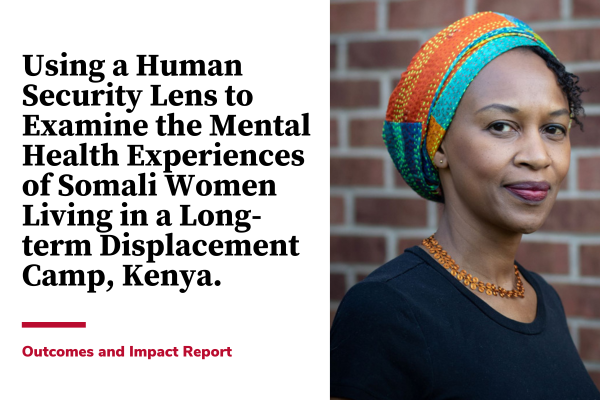Kagotho research examines the mental health experiences of women living in long-term displacement camp

The Mershon Center supports faculty and student research through grant and scholarship opportunities and is home to programs and research initiatives with unique goals and perspectives on security. Dr. Njeri Kagotho, associate professor at the Ohio State College of Social Work, received a grant to use a human security lens to examine the mental health experiences of Somali women living in the Kakuma Refugee Camp, Kenya. A recent report provides an overview of the outcomes and impact of this project.
Humanitarian migration and mental health are intricately connected making the lack of attention to mental health in global security discussions particularly concerning. Migrant women are considered especially vulnerable due to the distinct ways in which they experience the process of migration. Their intersectional identities, combined with societal expectations, and gender roles influence their mental health outcomes in unique ways. Studying the mental health experiences of female humanitarian migrants therefore demands a holistic approach.
Preliminary data analysis reveals notable trends in how individuals engage in key services, highlighting both the strengths and areas for improvement within the existing support systems. We anticipate that that findings from this study will inform Kenya’s migration policy framework including but not limited to issues of service provision, encampment conditions, and resettlement procedures.
This project underscores the complex challenges and opportunities within refugee camps, highlighting both the resilience of women and the critical supports available in the service systems. Moving forward, it is imperative that researchers, service providers, and governments work collaboratively to address ensure that refugee camps foster healing, dignity, and long-term integration.
